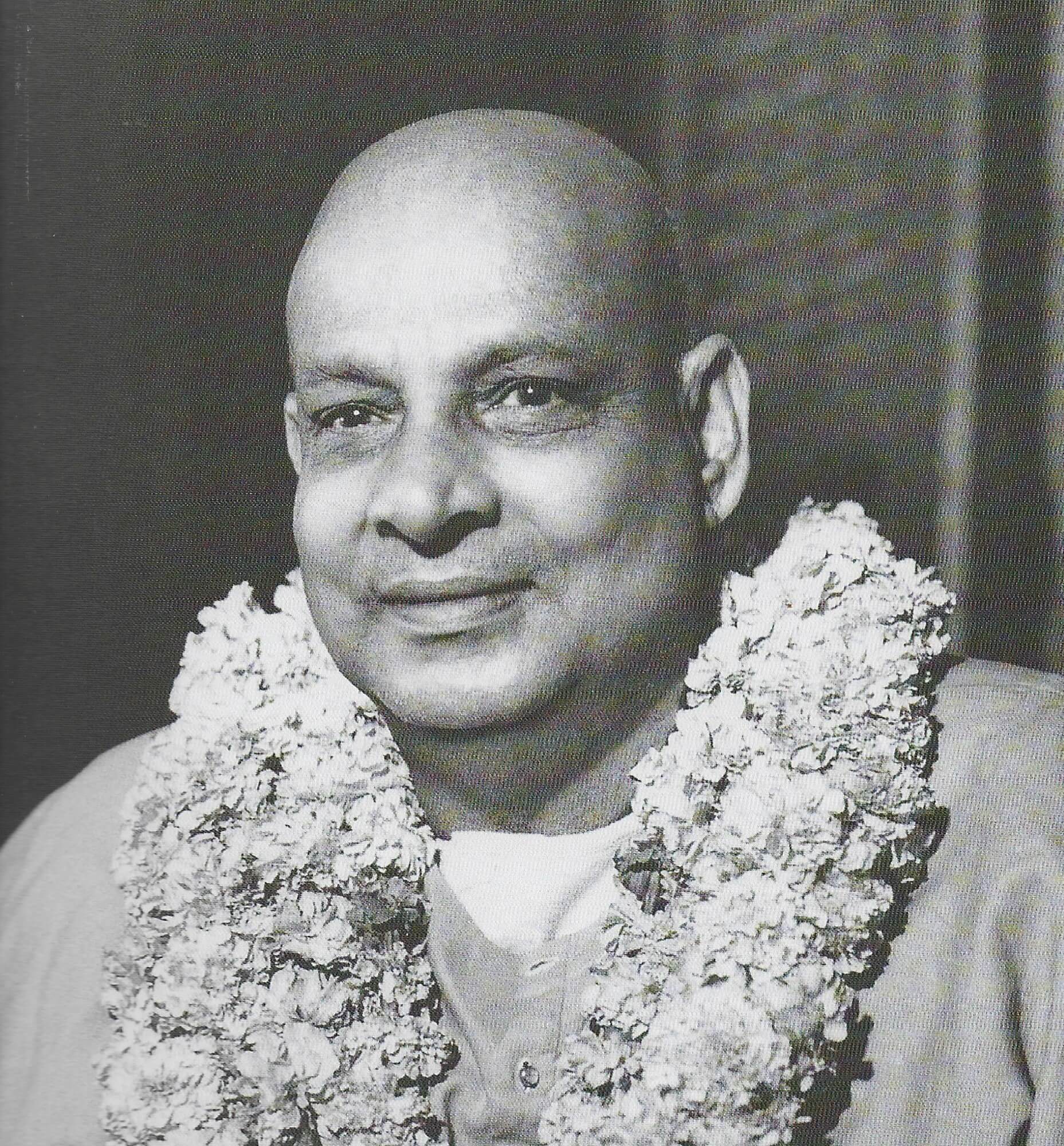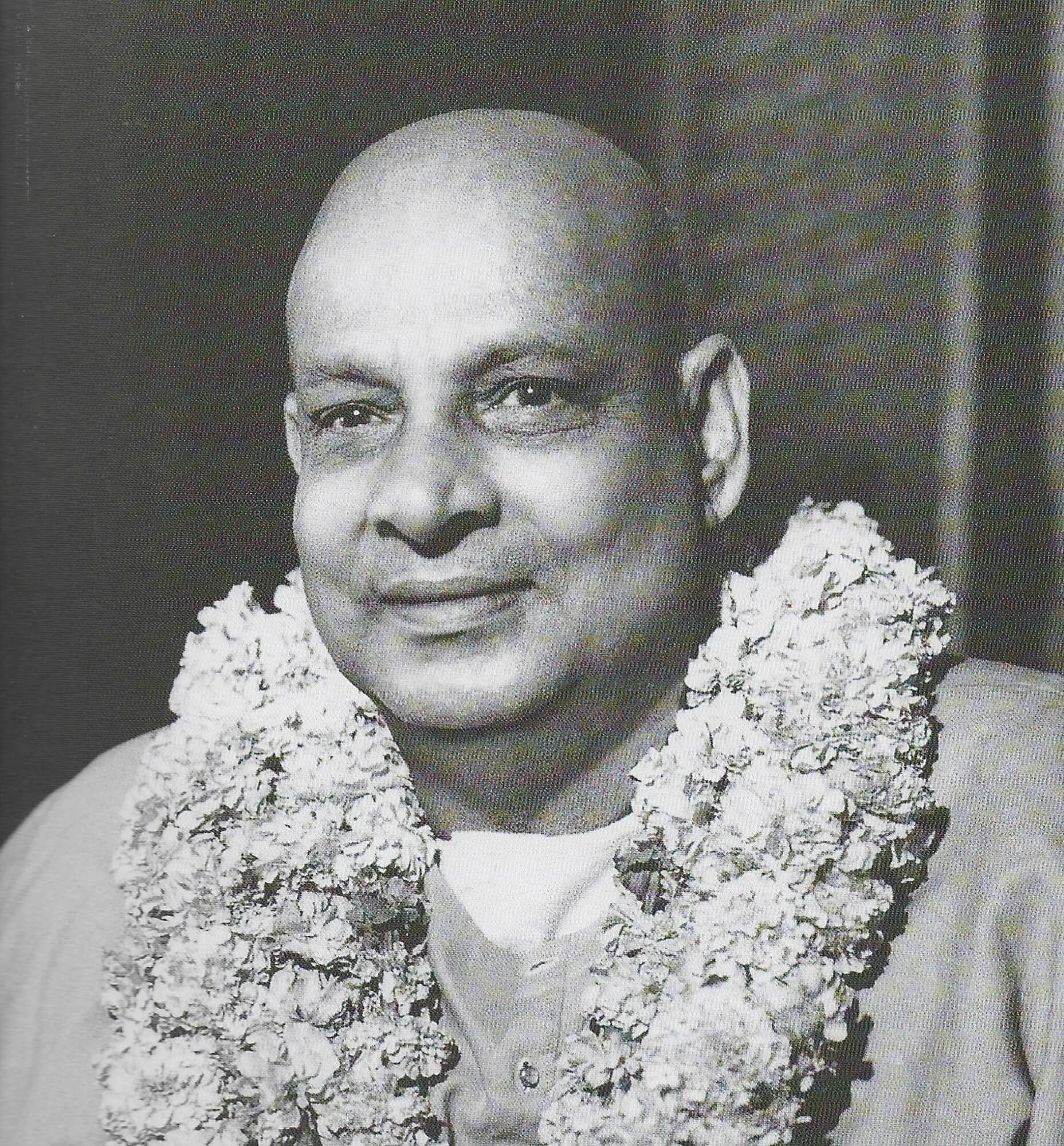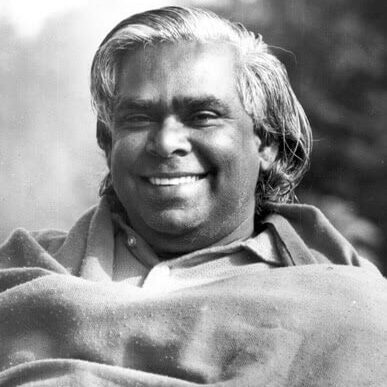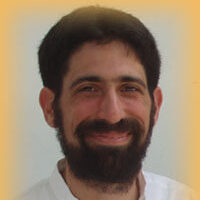About Us
उत्तिष्ठ जाग्रत प्राप्य वरान्निबोधत
uttiṣṭha jāgrata prāpya varānnibodhata
Arise! Awake! Having approached the Great Ones, Know the Atman
— Kathopaniṣad 1.3.14
The Vishnu-devananda Yoga Vedanta Center is a spiritual home dedicated to the practice and teaching of the various aspects of yoga for enhancing physical and mental balance, and to the study of Vedanta for developing clarity about one’s True Nature and freeing oneself from self-imposed limitations. We are affiliated with the International Sivananda Yoga Vedanta Centers which was founded by our late Master, Swami Vishnu-devananda, a world-renown yoga master and peace activist. Founded in May 2001, the center offers classical yoga, meditation, and Vedanta philosophy classes and intensives in Fremont, as well as annual retreats in the Himalayas, North India. Our classes follow a classical approach (Sivananda tradition) and are taught in the spirit of Karma Yoga, or selfless service.
As a spiritual center, our goal is spiritual practice, service, and Self-study. Our Vedanta courses and day-long retreats are offered on a donation basis. Although we list the expected donations for some of our courses, those who are unable to afford these amounts are welcome to join these on a donation basis as well.
No one will be turned away for lack of funds
Our Lineage

Swami Sivananda
Swami Sivananda is recognized as one of the great Masters of modern times. Born in the South Indian state of Tamil Nadu in 1887, he became a medical doctor to serve humanity. After serving the sick and poor in Malaysia with all of his heart and soul for over a decade, he discovered that healing physical ailments can only go so far, for true peace and happiness comes from the spirit.
He then renounced his successful career and went empty handed to the Himalayas to start his spiritual quest. For more than a decade Swami Sivananda performed austerities and spiritual practices that are beyond human imagination. During that time he would nurse and serve other pilgrims, monks and mendicants, seeing them as manifestations of the Divine. At the end of his penance period, he achieved enlightenment.
Swami Sivananda wrote many articles about his spiritual experiences and practices. These drew many aspirants who wanted guidance on their paths. In order to serve them as well as humanity at large, he founded Sivananda Ashram and the Divine Life Society in Rishikesh on the banks of the holy Ganga river. For the next thirty years he tirelessly trained many disciples, many who became great masters, and wrote nearly three hundred books on all aspects of spiritual life, yoga practice, and Vedanta philosophy. His writings are simple, practical, and speak directly to the heart of the reader.
Swami Sivananda taught the Yoga of Synthesis, in which all four paths of yoga – Bhakti (devotion), Karma (selfless service), Raja Yoga (mind control), and Jnana (introspection) are combined for balanced spiritual progress. One of his main mottos is Serve, Love, Give, Purify, Meditate, Realize. He entered Maha-Samadhi (the departure of a realized master from the physical world) on July 14th, 1963.

Swami Sivananda
Swami Sivananda is recognized as one of the great Masters of modern times. Born in the South Indian state of Tamil Nadu in 1887, he became a medical doctor to serve humanity. After serving the sick and poor in Malaysia with all of his heart and soul for over a decade, he discovered that healing physical ailments can only go so far, for true peace and happiness comes from the spirit.
He then renounced his successful career and went empty handed to the Himalayas to start his spiritual quest. For more than a decade Swami Sivananda performed austerities and spiritual practices that are beyond human imagination. During that time he would nurse and serve other pilgrims, monks and mendicants, seeing them as manifestations of the Divine. At the end of his penance period, he achieved enlightenment.
Swami Sivananda wrote many articles about his spiritual experiences and practices. These drew many aspirants who wanted guidance on their paths. In order to serve them as well as humanity at large, he founded Sivananda Ashram and the Divine Life Society in Rishikesh on the banks of the holy Ganga river. For the next thirty years he tirelessly trained many disciples, many who became great masters, and wrote nearly three hundred books on all aspects of spiritual life, yoga practice, and Vedanta philosophy. His writings are simple, practical, and speak directly to the heart of the reader.
Swami Sivananda taught the Yoga of Synthesis, in which all four paths of yoga – Bhakti (devotion), Karma (selfless service), Raja Yoga (mind control), and Jnana (introspection) are combined for balanced spiritual progress. One of his main mottos is Serve, Love, Give, Purify, Meditate, Realize. He entered Maha-Samadhi (the departure of a realized master from the physical world) on July 14th, 1963.

Swami Vishnu-devananda
Swami Vishnu-devananda, born in November 1927, is one of Swami Sivananda's major disciples. At a young age, while serving in the Indian army, he came across one of Swami Sivananda's many articles in the trash bin, a pamphlet titled Sadhana Tattva - 20 Spiritual Instructions by Swami Sivananda, which gave simple and practical instructions for aspirants. Inspired by these instructions, he desired to meet their author. Soon after his discharge from the army he joined the Sivananda Ashram in Rishikesh and became a disciple of Swami Sivananda.
Swami Sivananda saw the great potential of this young aspirant and soon made him the Professor of Hatha and Raja Yoga in his institution. After ten years of intensive training, Swami Sivananda sent Swami Vishnu-devananda to the West to spread the teachings of yoga and Vedanta for the good of mankind. Swami Vishnu-devananda became one of the pioneers who brought yoga to the West.
Swami Vishnu-devananda is considered one of the most dynamic yogis of the twentieth century. He began the first Yoga Teachers Training Courses to spread the teachings of yoga and thereby help create inner – and outer peace in the world. He traveled and taught tirelessly throughout the world to help establish these ancient teachings in North and South America, Europe, and the Middle East. Swami Vishnu was also a daring peace activist, who used to fly his plane over conflict hot spots around the globe, showering people with flowers and peace pamphlets. Amongst his peace missions, he flew from Tel Aviv to Cairo in the early seventies and from East to West Berlin in an ultra-light aircraft in the early eighties. He held that the international borders we create are mental barriers that need to be transcended, as we are all one.
Swami Vishnu-devananda entered Maha-Samadhi on November 9th, 1993.

Swami Vishnu-devananda
Swami Vishnu-devananda, born in November 1927, is one of Swami Sivananda's major disciples. At a young age, while serving in the Indian army, he came across one of Swami Sivananda's many articles in the trash bin, a pamphlet titled Sadhana Tattva - 20 Spiritual Instructions by Swami Sivananda, which gave simple and practical instructions for aspirants. Inspired by these instructions, he desired to meet their author. Soon after his discharge from the army he joined the Sivananda Ashram in Rishikesh and became a disciple of Swami Sivananda.
Swami Vishnu-devananda entered Maha-Samadhi on November 9th, 1993.
Swami Sivananda saw the great potential of this young aspirant and soon made him the Professor of Hatha and Raja Yoga in his institution. After ten years of intensive training, Swami Sivananda sent Swami Vishnu-devananda to the West to spread the teachings of yoga and Vedanta for the good of mankind. Swami Vishnu-devananda became one of the pioneers who brought yoga to the West.
Swami Vishnu-devananda is considered one of the most dynamic yogis of the twentieth century. He began the first Yoga Teachers Training Courses to spread the teachings of yoga and thereby help create inner – and outer peace in the world. He traveled and taught tirelessly throughout the world to help establish these ancient teachings in North and South America, Europe, and the Middle East. Swami Vishnu was also a daring peace activist, who used to fly his plane over conflict hot spots around the globe, showering people with flowers and peace pamphlets. Amongst his peace missions, he flew from Tel Aviv to Cairo in the early seventies and from East to West Berlin in an ultra-light aircraft in the early eighties. He held that the international borders we create are mental barriers that need to be transcended, as we are all one.
Instructor

Gajananam
Gajananam is a direct disciple of Swami Vishnu-devananda and is the founder/director of the Vishnu-devananda Yoga Vedanta Center in Fremont, CA. He delved into various yogic disciplines while serving and studying at the Sivananda Yoga Vedanta Centers in the mid-1980's and 1990's. In the 1990's he served as the director of the Sivananda Yoga Vedanta Center in New York and has taught at many Sivananda Yoga Teacher Training Courses and retreats.
To deepen his understanding of the ancient scriptures and mantras, he studied Sanskrit under the tutelage of the Sanskrit Scholar Dr. Sarasvati Mohan in the 2000’s. Since 2013, he has been studying Vedantic scriptures in a traditional fashion at Arsha Vidya. For over a decade, he has been spending time each year in personal retreat in Uttarakashi, Himalayas, where he attends Satsang with senior sadhus and monks. With over to 3 decades of practice, study and teaching experience, he offers yoga and Vedanta courses and retreats in Fremont and at various centers and ashrams.

Gajananam
Gajananam is a direct disciple of Swami Vishnu-devananda and is the founder/director of the Vishnu-devananda Yoga Vedanta Center in Fremont, CA. He delved into various yogic disciplines while serving and studying at the Sivananda Yoga Vedanta Centers in the mid-1980's and 1990's. In the 1990's he served as the director of the Sivananda Yoga Vedanta Center in New York and has taught at many Sivananda Yoga Teacher Training Courses and retreats.
To deepen his understanding of the ancient scriptures and mantras, he studied Sanskrit under the tutelage of the Sanskrit Scholar Dr. Sarasvati Mohan in the 2000’s. Since 2013, he has been studying Vedantic scriptures in a traditional fashion at Arsha Vidya. For over a decade, he has been spending time each year in personal retreat in Uttarakashi, Himalayas, where he attends Satsang with senior sadhus and monks. With over to 3 decades of practice, study and teaching experience, he offers yoga and Vedanta courses and retreats in Fremont and at various centers and ashrams.
The 4 Paths of Yoga
Swami Vishnu-devananda’s master, Swami Sivananda, emphasized the practice of the Yoga of Synthesis by incorporating all four paths of Yoga. By spiritually developing the hand, heart, mind and intellect, one creates a broad and solid foundation for the spiritual quest.
The 5 Points of Yoga
Swami Vishnu’s 5 Points for Health and Happiness
Proper Exercise
Yoga Asanas (Postures) increase our bodily circulation, tone our muscles, ligaments, spinal column and internal organs.
Proper Breathing
Pranayama (breathing exercises) increase the oxygen and Prana (energy) within our system, and balance the whole energy system.
Proper Relaxation
Increases awareness, while soothing and calming the bubbling mind and emotions. Relaxation also decreases the physical and mental tensions.
Proper Diet
A Sattvic (balanced and pure) vegetarian diet renders the body healthy and aids in calming and controlling the mind.
Positive Thinking and Meditation
Cultivation of a positive outlook removes many obstacles along our paths, and practice of meditation helps us transcend our limitations and get in touch with our inner peace.
The 5 Points of Yoga
Swami Vishnu’s 5 Points for Health and Happiness
1. Proper Exercise
Yoga Asanas (Postures) increase our bodily circulation, tone our muscles, ligaments, spinal column and internal organs.
2. Proper Breathing
Pranayama (breathing exercises) increase the oxygen and Prana (energy) within our system, and balance the whole energy system.
3. Proper Relaxation
Increases awareness, while soothing and calming the bubbling mind and emotions. Relaxation also decreases the physical and mental tensions.
4. Proper Diet
A Sattvic (balanced and pure) vegetarian diet renders the body healthy and aids in calming and controlling the mind.
5. Positive Thinking and Meditation
Cultivation of a positive outlook removes many obstacles along our paths, and practice of meditation helps us transcend our limitations and get in touch with our inner peace.
Vedanta Classes
Vedanta claims that one of the most misunderstood words in our language is “I”. We take its meaning for granted without any analysis. Many other phenomena are thoroughly analyzed by us, such as atoms, stars, politics, etc., but we don’t inquire into the inquirer itself. Different Vedantic methodologies are prescribed for discerning who it is experiencing the world through this body-mind-sense complex. Just as a map is necessary for reaching a destination, the teachings of Vedanta are the compass guiding the aspirant along the path of self-inquiry. Traditionally, Vedanta is studied by listening to the teachings from an experienced teacher, reflecting on them to help clarify our doubts, and meditating on these truths to enshrine them in our being. Vedanta offers a three-step system for gaining this understanding – Shravanam or listening to the Upanishadic teachings from an experienced teacher, Mananam or reflecting on them to help clarify our doubts, and Nididhyasanam or meditating upon these truths.